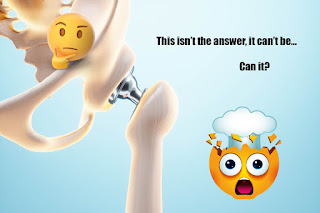Mindfulness Techniques to Alleviate Symptoms of Depression
Mindfulness refers to the practice of focusing your attention on the present moment and accepting it without judgment. It has been shown to have significant benefits for mental health, including the reduction of depression symptoms. Here are some mindfulness techniques that can help alleviate these symptoms:
1. Mindful Breathing:
- What It Is: This simple yet effective mindfulness technique involves focusing your attention on your breath as it flows in and out. The other day I was practicing breathing and lowering my pain at the chiropractor. I'm usually textbook with my BP unless I have a lot of pain that day. They were doing a check on my progress, and BP was one of those checks. It came back 90/77 vs 120/80 ish. Mindfulness can sometimes be that dramatically effective.
From What are the Benefits of Cold Therapy? | Wim Hof Method (n.d.) details on how to use cold therapy are outlined and it suggests that handling more than just mental stress can be achieved, such as physical stresses as well. I am in the process of learning and using Wim Hof's techniques and can walk into a cold shower up to my chest so far. I'm waiting to see the results, but I've begun, which is more than I had ever reached with his methods when I was younger.
- How It Helps: Mindful breathing can help anchor you in the present moment, diverting your mind away from depressive thoughts. It can also relax the body, reducing physical symptoms of depression such as fatigue or restlessness. I find that when I practice breathing, it brings me to a place where very few things disturb or rattle me.
2. Body Scan Meditation:
- What It Is: A body scan meditation involves slowly directing your attention through different parts of your body, observing sensations without judgment. You will find that 'sensing' issues throughout your body will become easier as time goes on and you practice this more and more.
- How It Helps: This practice enhances body awareness, reduces physical tension, and provides a calming effect, which can be beneficial for people experiencing depression. Finding the place where depression starts and stops is difficult. But as we aren't completely aware of how the body processes emotions, learning to alter how our body handles stress and emotions through some intangible practices is some of the ways that I've handled mine.
Further research on NLP: Coleman (2019.) wrote about Richard Branson using NLP to cope with stress. I've personally used NLP to mitigate some of my fears by reversing the feeling that caused me to become overwhelmed with fear in the past.
3. Mindful Eating:
- How It Helps: This practice can help you enjoy meals more, improve your relationship with food, and help control overeating, which can be a symptom of depression.
4. Walking Meditation:
- What It Is: Walking meditation combines the physical activity of walking with mindfulness. It involves being aware of the physical act of walking and observing the environment around you without judgment. I personally feel that walking outside and communing so to speak with the nature around me helps to ground myself mentally and physically.
- How It Helps: It can help ground your thoughts in the present and has the added benefit of gentle physical activity, known to help combat depression.
5. Mindfulness-Based Cognitive Therapy (MBCT):
- How It Helps: MBCT has been found to be effective in preventing relapses of depression, especially in individuals who have had multiple episodes.
6. Loving-Kindness Meditation:
- What It Is: This meditation focuses on developing compassion and love towards yourself and others. I believe in this wholeheartedly as it resonates with my goals and personality. I firmly believe in protecting those who can't do for themselves and helping others who want to better themselves.
- How It Helps: Cultivating feelings of kindness can combat negative thought patterns, increase feelings of self-worth, and improve overall emotional well-being.
Remember, mindfulness is a skill that takes practice. Start small, be patient with yourself, and remember that it's okay if your mind wanders sometimes. It’s the act of noticing where your mind goes and bringing your attention back to the present that builds your mindfulness muscle.
While mindfulness can be a powerful tool in managing depression symptoms, it should not replace traditional treatments like therapy or medication. Always consult with a healthcare professional for a comprehensive treatment plan.
References:
Nick, A. (n.d.).Why Chewing Food and Eating Slowly Improves Your Health - Nathan Mogren DMD - Norton Shores Dentist. (n.d.). Retrieved August 19, 2023 from https://mogrendental.com/why-chewing-food-and-eating-slowly-improves-your-health/#:~:text=Scarfing down your meal in, helps your stomach digest it
What are the Benefits of Cold Therapy? | Wim Hof Method. (n.d.). Wim Hof Method. Retrieved August 19, 2023 from https://www.wimhofmethod.com/cold-therapy


Comments